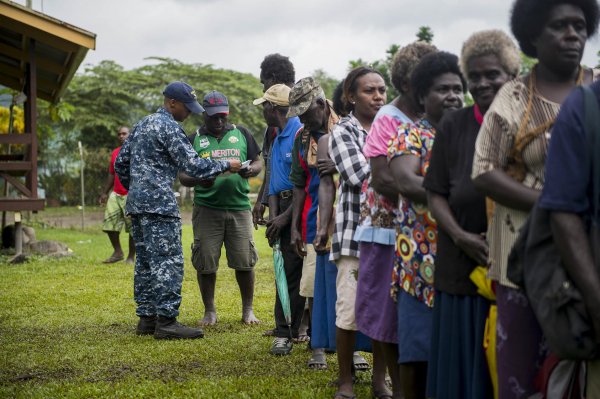
In a referendum held over two weeks, the people of Bougainville, an archipelago in the South Pacific’s Solomon Sea, voted overwhelmingly to seek independence from Papua New Guinea (PNG). The referendum was the centerpiece of the 2001 Bougainville Peace Agreement between the PNG government and Bougainville independence leaders to end a devastating decade-long war that claimed nearly 20,000 lives—nearly a tenth the territory’s total population. Negotiations between PNG and Bougainville about the road forward will now begin and could continue for years, with the PNG parliament having the final say. Control of the territory’s rich mineral resources has been a key issue in the conflict.
Bougainville was named for French navigator Louis Antoine de Bougainville, who sailed along the archipelago’s east coast in 1768. In the 19th century, Bougainville was colonized by Germany, and was used by Japan as a military base during World War II. Afte the war, it was administered by Australia until PNG gained independence in 1975. A giant copper mine, Panguna, was opened in 1969 by Bougainville Copper Ltd, a subsidiary of Anglo-Australian multinational resources corporation Rio Tinto. Tensions over how the mine’s profits should be shared prompted Rio Tinto to abandon the project in 1989 amid an escalation to armed conflict. At the time, it had been PNG’s largest source of export revenue, accounting for some 7% of global copper production.
The war between Bougainville’s rebel guerilla army and PNG forces, which ended with a ceasefire in 1998, was the worst conflict in the Oceania region since World War II. PNG was massively backed with military aid by Australia during the conflcit. The peace was formalized with the 2001 agreement that established the Bougainville Autonomous Government. (Radio Australia, AP, NDTV, Dec. 11; UNPO, Nov. 22)




